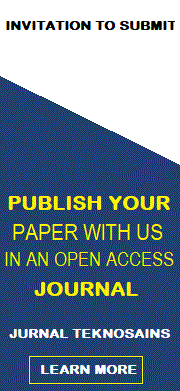SIMULASI ALIRAN PASIEN RAWAT INAP UNTUK MENGURANGI BOTTLENECK
Thomas Sonny Soegiharto dan Anna Maria Sri Asih(1*)
(1) Jurusan Teknik Mesin dan Industri Fakultas Teknik Universitas Gadjah Mada
(*) Corresponding Author
Abstract
Bottleneck is possible to occur in a system like hospital, especially in admission and discharge of inpatient
processes. It can have impact on increasing waiting time and delayed time. Some alternatives were proposed to
reduce them, i.e. shift scheduling and human resource allocation. This research modelled real system accompanied
by two scenarios: the first scenario was conducted by balancing human resource utility without altering number
of employees, whereas the second scenario considered possibility of changing number of employees. The results
showed that both scenarios produced reduction of waiting time and delayed time. The first scenario is more feasible
compared to the second as no hiring or firing employees occurred, resulting in waiting time reduction of 110.6
minutes (15%) and decrease in delayed time by 184 minutes (15.9%). The reduction of waiting time and delayed
time is higher in scenario 2, which are 423.6 minutes (57%) and 281 minutes (24%), respectively. However, there
must be 4 additional employees hired in pharmacy applied in scenario 2.
processes. It can have impact on increasing waiting time and delayed time. Some alternatives were proposed to
reduce them, i.e. shift scheduling and human resource allocation. This research modelled real system accompanied
by two scenarios: the first scenario was conducted by balancing human resource utility without altering number
of employees, whereas the second scenario considered possibility of changing number of employees. The results
showed that both scenarios produced reduction of waiting time and delayed time. The first scenario is more feasible
compared to the second as no hiring or firing employees occurred, resulting in waiting time reduction of 110.6
minutes (15%) and decrease in delayed time by 184 minutes (15.9%). The reduction of waiting time and delayed
time is higher in scenario 2, which are 423.6 minutes (57%) and 281 minutes (24%), respectively. However, there
must be 4 additional employees hired in pharmacy applied in scenario 2.
Keywords
Bottleneck, Waiting time, Delayed time, Human resource allocation, Utility, Hospital, Inpatient, Modeling, Simulation
Full Text:
PDFArticle Metrics
Refbacks
- There are currently no refbacks.
Copyright (c) 2015 Thomas Sonny Soegiharto dan Anna Maria Sri Asih

This work is licensed under a Creative Commons Attribution-ShareAlike 4.0 International License.
Submit an Article Tracking Your Submission
Editorial Policies Publishing System Copyright Notice Site Map Journal History Visitor Statistics Abstracting & Indexing










